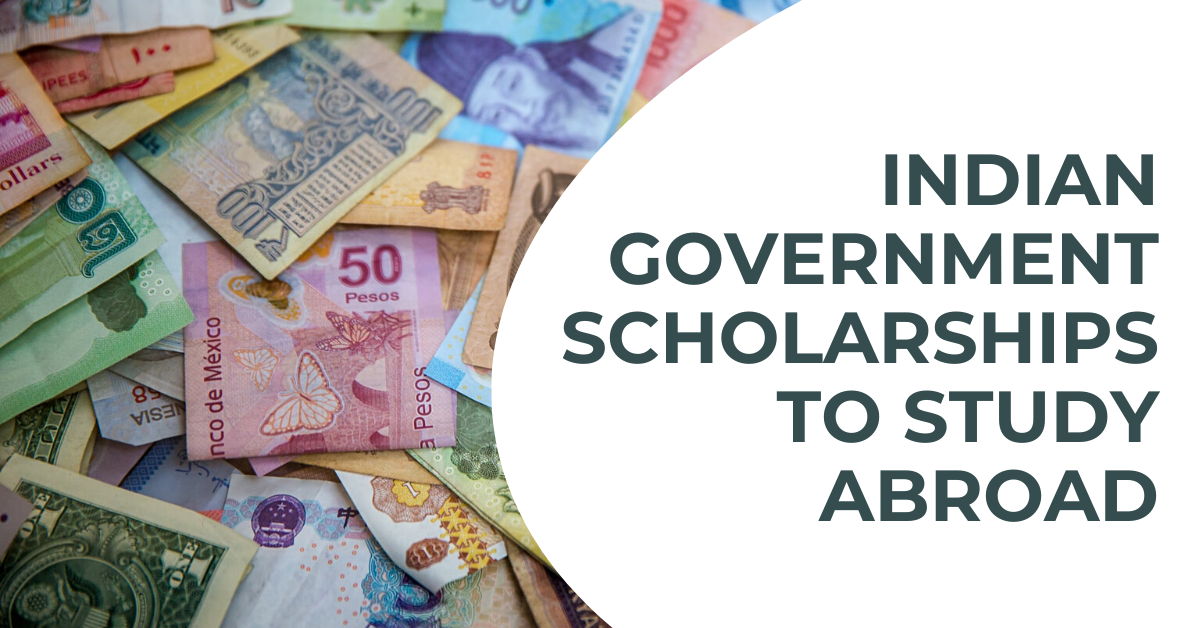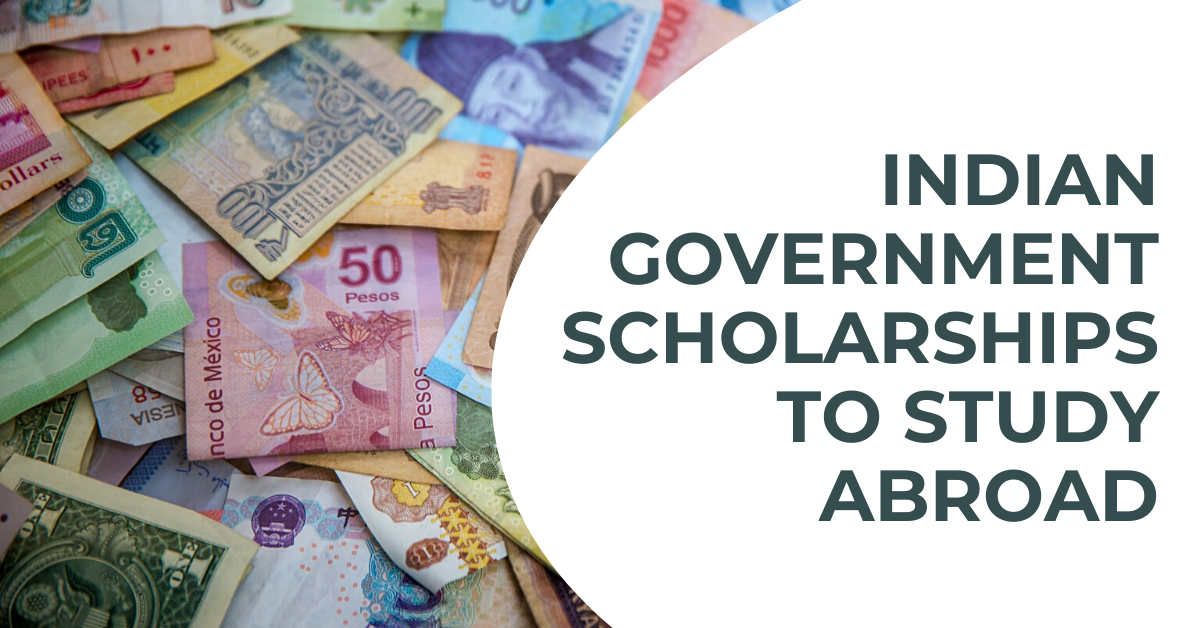
Every year thousands of Indian students move abroad to study or to work. Finding the right course, the right college, and guidance to clear the entrance is a part of the journey. However, a major aspect that most students fear is the “Course Fee”. Ranging from a few lakhs to crores of rupees, abroad studies can be costly and financially draining at times. But the Indian Government Scholarships to study abroad prove efficient for students in this scenario. They allow students to pursue their dream courses in the best universities abroad irrespective of their financial status. Government Scholarships, here, act as empowering agents for academic and career goals as they remove financial hurdles.
Before seeing the different public domain scholarships, let us have a look at the major components of all scholarships.
Every scholarship has a number of components such as the eligibility, the process of selection criteria, the overall tenure and its benefits. To understand these better, let us have a look at some of the scholarships offered by the Indian government.
Some popular Indian Government Scholarships
1. FULBRIGHT NEHRU MASTER’S FELLOWSHIP
Eligibility: This fellowship is for an after-graduation program offered by the Indian Government. The students with Indian citizenship who have completed either –
- A four-year bachelor’s degree
- A Master’s Degree or
- A Full-time Postgraduate Diploma in case of 3 years bachelor’s degree
Along with this, the student should have a minimum of 55% in their UG degree with a leadership skill set and experience in community service. Also, an IELTS score of 6.0 or an equivalent score of TOEFL/PTE is a prerequisite.
To know more about IELTS, TOEFL or PTE click here
Tenure: The government offers fellowship grants for a period of 1 to 2 years depending on the master’s course one is enrolled in.
Benefits of Scholarship: The Government of India offered fellowship has manifold benefits which entail-
- Support facility for the student visa.
- Round trip economy class airplane ticket fares.
- Tuition Fees (which may be supported by other resources in case all expenses are not covered by the grant).
- Coverage for accidents and illness concerning US guidelines
- Certain other expenses.
Selection Process: After creating an account on the government mentioned website https://www.usief.org.in/Fellowships.aspx, the student needs to fill out the application form. This is the requirements of personal, academic, language and contact information. After completion, the student submits the form with the following documents –
- Academic transcript
- SOP
- Resume
- Mark sheets
- Proficiency test scorecard, and
- A minimum of 3 LORs.
The Full-Bright program itself sends applications to different institutes in the US. After this, the USIEF informs the shortlisted candidates.
2. NATIONAL OVERSEAS SCHOLARSHIPS
Eligibility: Students who are Indian citizens and belong to the scheduled caste, de-notified, nomadic, and semi-nomadic tribe, and landless agricultural laborers and traditional artisans are eligible for this government scholarship. Along with this-
- Application for Master and Ph.D. level courses
- Minimum of 60% marks in the last exam appeared (qualifying exam)
- Minimum IELTS score or equivalent score of TOEFL, PTE, GMAT, etc.
- Age should not be more than 35 years on 1st April, of the selected year
- Total family income should not be more than Rs. 8.00 lakhs from different sources
- 2 children from the same parents cannot be considered
Tenure: The tenure for public fellowship grants shall be given up to course completion or for 4 years of Ph.D. and 3 years of the Master’s program.
Benefits of Scholarship: These benefits of Indian government offered grant include:
- Annual Maintenance Allowance
- Contingency Allowance
- Tuition Fees
- Visa Fees
- Medical Insurance
- Incidental Journey Allowance and Equipment Allowance
- Air passage (As per conditions)
Selection Process: Interested students need to submit their complete application form to the Ministry of Social Justice and Empowerment, Government of India. One needs to submit self-attested copies of DOB proof, degree along with mark sheet, family’s income certificate and offer letter from University along with the form. The Selection Committee for the National Overseas Scholarship scrutinizes all the applications. After selection, the students will be awarded the fellowship without any further interviews or group discussions. Also, only 125 students get this scholarship; however, this is granted every year to new students also.
3. SCHOLARSHIP OF THE AGA KHAN FOUNDATION
Eligibility: Students should be nationals of any one of the following countries: India, Bangladesh, Pakistan, Afghanistan, Tanzania, Tajikistan, Kyrgyzstan, Syria, Egypt, Kenya, Uganda, Madagascar, or Mozambique. Along with this:
- Students must show interest in development-related studies.
- Preference for students aged under 30
- 50% of the amount given as a scholarship is considered a loan. It is to be returned with a 5% annual service charge.
- A guarantor signs the 50% loan, and the payback period is 5 years, starting 6 months into the program.
- The applicant should be from the region with local offices of the Aga Khan Foundation, Aga Khan Education Services, or Aga Khan Education Board for the application process.
- Applications to universities in the UK, Germany, Sweden, Austria, Denmark, the Netherlands, Italy, Norway, and Ireland are not accepted.
Tenure: The tenure for the fellowship grants for the Ph.D. programme shall be 2 years, after which the student is expected to work out alternate sources of payment.
Benefits of Scholarship: These benefits of the Indian government’s grant offer include:
- Tuition Fees
- Living expenses
- No travel allowances
- As needed assistance
- ISP should be considered the last option.
- Preference is given to those who have acquired help from other sources, and only minimal monetary help is needed.
Selection Procedure: Interested students must submit a completed application form from the Aga Khan Foundation’s official website. The organization assesses the students on the basis of:
- Academic excellence
- Financial requirements
- Admission to the programme
- Relevance of the programme concerning the vision of the Aga Khan Foundation
The Scholarship Committee of AKDN interviews the candidates who are deemed fit on these grounds. Then, after the annual scholarship selection meeting, the selected students are notified.
4. The Great Wall Scholarship
Eligibility: Students should be citizens of countries in Asia, Africa, the Pacific, the Arab States, Latin America and the Caribbean, Europe, and North America. Along with this:
- Scholarships are for developing countries
- Under 45 years of age for the General Scholar Program
- Under 50 years of age for the Senior Scholar Program
- The General Scholar Program requires a minimum of two years of undergraduate study
- For the Senior Scholar Program, a postgraduate degree or an associate professorship
- English Proficiency
- Students should be in good physical and mental health
Tenure: The tenure for advanced studies and individual research with regular guidance for students will last for 1 year.
Benefits of Scholarship: These benefits of the government grant are for 75 students only, and they include:
- Tuition Fees
- Accommodation
- Stipend
- comprehensive medical insurance
- Travel fair by UNESCO
- monthly pocket allowance
- Termination allowance
Selection Process: Interested students need to refer to the announcement letter for the UNESCO/China Co-Sponsored Fellowships Program. They should then contact the target Chinese universities. Students need to create a proper application document, either in English or Chinese and attach their pre-admission letters. After that, they need to submit the application to the UNESCO office in their country. If nominated by UNESCO for the program, the candidate then needs to complete his online application. They will submit all the supporting documents. Lastly, students need to attach the nomination letters and online application forms with photocopies of valid ordinary passports and submit them to UNESCO. After this process, the candidate needs to submit application documents through the National Commission. They will then select qualified candidates and send nomination letters to UNESCO. One also needs to send the China Scholarship Council’s online application forms and photocopies of valid ordinary passports.
Conclusion
All the above-mentioned scholarships are either Indian Government scholarships or partnered scholarships. Fortunately, they cater to different sections of society, with different benefits for all. While one is open to all students, the other is mainly for backward or lower-income classes. The third is a 50-50 aid and loan partnership, while the fourth is mainly for research work. Though different in terms of targeted students, all fellowships aim to help students pursue their dream courses. Knowing how difficult finances can be, the government always tries to help with academic excellence and monetary aid. The tentative dates for the opening of applications are May for the Fulbright-Nehru Master’s Fellowship and April for the National Overseas Scholarship. For the AGA KHAN FOUNDATION SCHOLARSHIP, the tentative application dates are in March, and for the GREAT WALL SCHOLARSHIP, the deadline is tentatively in April.
To know more about such scholarships, stay connected with us!


